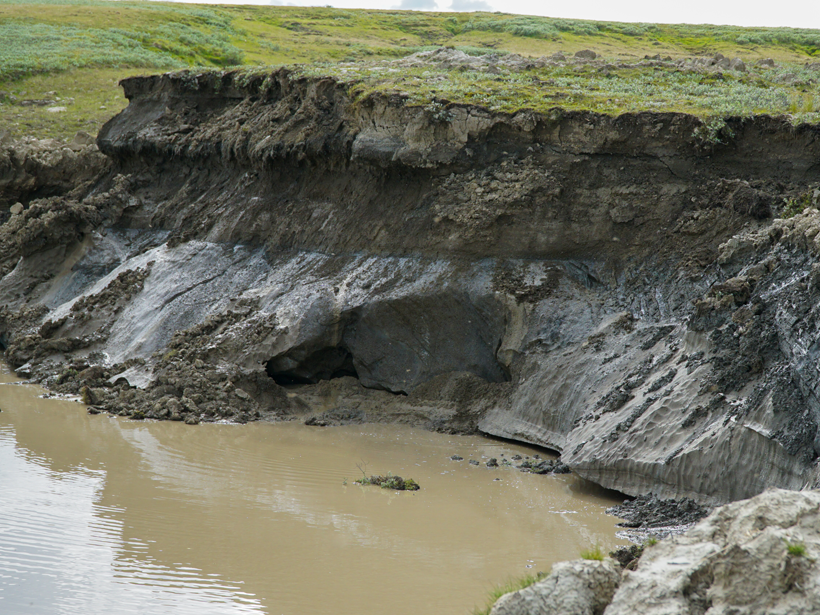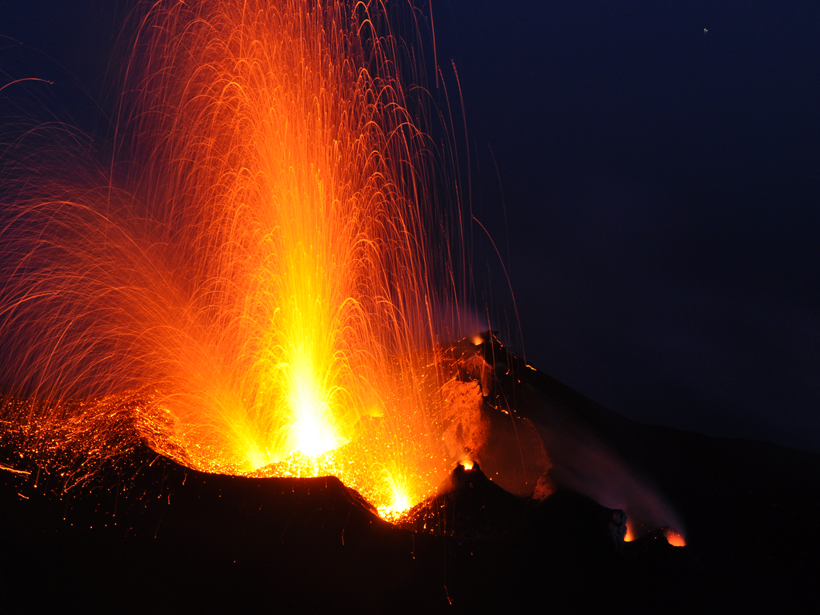A team of international scientists surveyed an array of Earth ecosystem models, recommending several ways to reduce uncertainties.
Research Spotlights
Research spotlights are plain-language summaries of recent articles published in AGU’s suite of 24 journals.
How Lightning Creates "Killer Electrons" in Earth's Radiation Belts
New calculations show that lightning-triggered plasma waves in Earth's magnetosphere absorb energy from slow particles and energize electrons to levels that can damage satellites severely.
Tracking Volcanic Bombs in Three Dimensions
A new method allows researchers to precisely track in three dimensions bits of fragmented magma as they are expelled in explosive volcanic eruptions.
Exploring Ancient Ocean Acidification in the Rock Record
Scientists studying Earth's ancient oceans use a new method to measure ocean acidification and its effect on extinction events.
Polar Interlopers in the Aurora
A new study suggests that poleward boundary intensifications in the aurora are caused by fast flows of plasma from the poles into the auroral oval.
On the Origin of Low-Angle Detachment Faults
Data from California's Whipple Mountains suggest this complex was formed by a succession of steep normal faults, challenging the paradigm that detachments are different types of faults.
Alteration Along the Alpine Fault Helps Build Seismic Strain
Detailed analysis of cores drilled through New Zealand's most dangerous on-land fault indicates that its permeability and strength are altered by mineral precipitation between seismic events.
Arctic Permafrost Thaw Would Amplify Climate Change
An international team probed Arctic permafrost samples to better understand the carbon feedback loop that could be set off by future thawing.
A Two-Way Relationship Between the Atlantic and Pacific Oceans
Researchers have uncovered a new connection between sea surface temperatures in the Atlantic and tropical cyclones in the eastern Pacific that could improve accuracies of future cyclone forecasts.
After Decades, High-Altitude Observations Revived at Jicamarca
Recent upgrades to the Jicamarca Radio Observatory in Peru allow it to probe electron densities several thousand kilometers above Earth, a feat it hasn't accomplished in 50 years.










